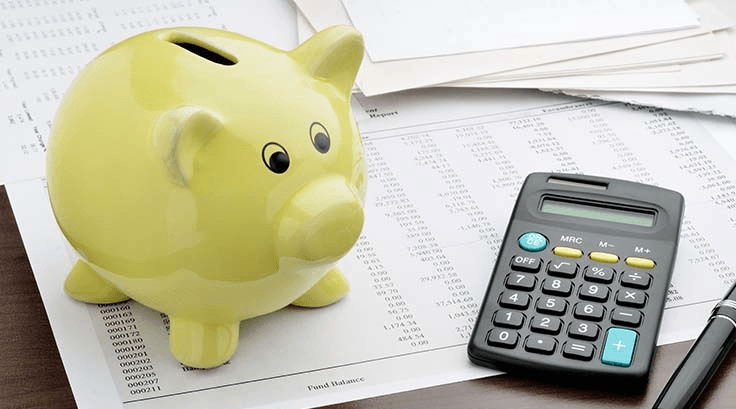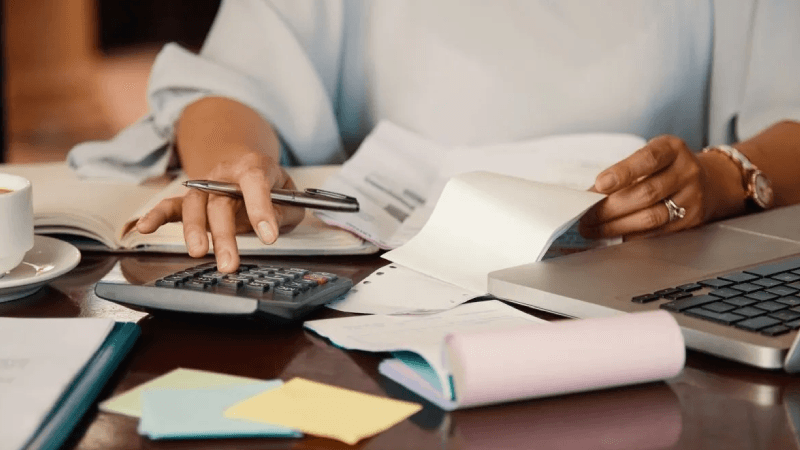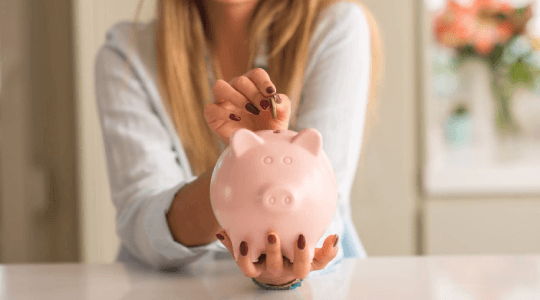
Succeeding in our personal finances is not an easy task, but it is possible if we adopt the right habits. In this article, we will introduce you to the best financial habits you should adopt to succeed in your personal finances.
From financial planning to spending control, these habits will help you better manage your money and reach your long-term financial goals. Read on to find out how to improve your financial skills!
Always save
One of the most important financial habits you should adopt is to always save. This means that regardless of your income, you should set aside a portion of it for savings. Many people make the mistake of spending all their money and only saving what is left over at the end of the month. However, this is not the right way to save.
To save effectively, it is important to set a savings goal and allocate a fixed amount of money to reach it. You can use different methods to save, such as opening a bank account specifically for your savings or investing in some type of fund or investment plan.
No matter how much you can save each month, the important thing is to be consistent and disciplined in your financial habits. Saving will allow you to accumulate capital over time and have more financial security to face unforeseen events or meet your long-term goals.
Create a budget
One of the best financial practices is to create a budget and follow it rigorously. Before planning your expenses, be sure to separate your income and expenses into different categories. This will help you better understand your spending habits and identify areas where you can reduce your expenses.
Once you have created your budget, it is important to follow it with discipline. Review your monthly expenses and make sure you are staying in line with your plan. If you find that you are spending more than you should, look for ways to reduce your expenses without sacrificing your basic needs.
Remember, creating a budget doesn't mean depriving yourself of things you enjoy, but rather finding a balance between saving and spending in order to fund important long-term goals.
Set financial goals
To be successful in your personal finances, it is important that you set clear and realistic financial goals. These goals can be short-term, such as saving for a vacation, or long-term, such as planning for retirement.
When setting your financial goals, you should consider your income, expenses and lifestyle to determine how achievable they are. In addition, it is important to set deadlines for reaching your goals and to review them periodically to make sure you are on track.
Remember that having financial goals will help you stay motivated and focused on your personal finances, and allow you to make informed decisions about your long-term spending and investments.
Look for deals and discounts
One of the best ways to save money is to look for deals and discounts on your everyday purchases. This can involve comparing prices, searching for coupons or using apps to help you find promotions.
It's also important to be aware of special sales and discount dates, such as Black Friday or Cyber Monday, to make the most of these opportunities.
Remember that every euro or dollar you save on your purchases can make a big difference in the long run in your personal finances.
Pay your debts on time
One of the keys to maintaining good financial health is to pay your debts on time. If you have outstanding debts, don't forget to make your payments on time to avoid interest and late fees. In addition, keeping your payments current helps you build a positive credit history, which can be helpful if you ever need to apply for a loan or credit card.
Prioritize higher-interest debts
If you have several debts, it's important to prioritize those with the highest interest. This way, you will be paying less interest and you will be able to get out of them faster.
A recommended strategy is to make minimum payments on those debts with lower interest and allocate as much money as possible to high-interest debts. Another option is to consolidate all debts into one debt with a lower interest rate.
Remember that the longer you take to pay off a debt, the more money you will be paying in interest. Therefore, it is better to be proactive and work to get out of debt as soon as possible.
Don't spend unnecessarily to pay debts
One of the worst things you can do when you're in debt is to keep spending on unnecessary things. While it may be tempting to buy something you like or go out to dinner at a fancy restaurant, it's probably not the best option if you have outstanding debts.
Instead, make a budget and try to keep your spending to a minimum so you can put more money toward paying off your debts. If you need help, consider talking to a financial advisor or looking for online resources to learn how to better manage your money.
Consider debt consolidation or financial counseling
If you have a lot of debts and find yourself in a difficult situation to pay them all, consider consolidating them into one debt. This will allow you to pay a lower monthly payment and have better control over your payments. But, before making this decision, be sure to research your options and compare the interest rates and terms offered by different financial institutions.
On the other hand, if you feel you need help managing your personal finances, consider seeking financial counseling. A financial advisor can help you set realistic financial goals, create a budget and plan your savings and investments. They can also help you better understand the financial products available in the marketplace and make informed decisions about your financial future.
Avoid impulse purchases
One of the worst things you can do for your personal finances is to buy impulsively. If you don't control your impulses and buy whatever you feel like buying, regardless of the price, you will end up spending all your money on unnecessary things.
To avoid impulse buying, it is important to make a list of what you need and set a budget for each of them. If something is not on your list or not within your budget, don't buy it.
Another way to avoid impulse purchases is to wait 24 hours before making a major purchase. During this time, reflect on whether the purchase is really necessary and whether you can afford it without compromising your finances.
Make a list before you go shopping
Before you go shopping, it is important to have a clear list of what you need and stick to it. This will help you not to buy unnecessary things and to control your expenses. In addition, it is advisable to compare prices and look for bargains to save money.
It is also important not to get carried away by emotions when shopping. Sometimes, we let ourselves be influenced by trends or advertising and end up buying things we don't need. It is better to carefully analyze what we need and make a smart purchase.
Another useful tip is to avoid shopping when we are hungry or tired. When we are tired or hungry, our judgment is clouded and we end up buying things impulsively. Therefore, it is better to go shopping after eating or resting to have a clear mind.
In short, making a list before going shopping will help you control your spending and make smarter purchases. It is also important to compare prices, avoid being carried away by emotions and do not buy when you are hungry or tired.
Consider waiting a few days before making a major purchase
Before making a major purchase, such as a car or a house, it is important to take a few days to think about it. Often, the emotion of the moment can cloud our judgment and cause us to make impulsive decisions that are not in line with our long-term financial goals.
Take the time to research and compare prices, read reviews and consider whether you really need what you plan to buy. If after a few days you still feel it's a worthwhile purchase, go ahead. But if you have doubts or realize it's not a good financial decision, it's better to wait or look for other alternatives.
Don't go into debt for unnecessary or luxury purchases
It is important to have control over what we buy and why we buy it. Many times we get carried away by advertising and current trends, and we end up getting into debt for things that we do not really need or that we could buy later without affecting our economy.
It is essential to learn to differentiate between what is a necessity and what is a whim. If you want to make a luxury purchase, make sure you have enough money to pay for it without having to resort to loans or credit cards.
Always remember to prioritize your expenses and avoid getting into debt for unnecessary purchases. This way, you will be able to keep your personal finances healthy and reach your long-term goals more easily.
Research long-term investments and savings
One of the keys to success in your personal finances is learning how to invest your money wisely and strategically. As you approach retirement age, it's especially important to consider long-term investment and savings options.
Researching different investment options, such as mutual funds, bonds and stocks, can help you make informed decisions about how to invest your money. It's important to make sure you understand the risks associated with each option and how they fit your financial goals.
Saving is also critical to ensuring long-term financial health. Establishing a regular savings plan, such as setting aside a fixed percentage of your income each month, can help you build up a significant financial nest egg over time.
Remember that there is no one-size-fits-all strategy for investing and saving that works for everyone. It's important to evaluate your individual financial goals and design a customized plan that fits your specific needs.
Consider investment options through IRAs or 401k accounts
IRAs and 401ks are popular retirement savings options in the United States. Through these accounts, you can invest in stocks, bonds, mutual funds, among other financial instruments.
One of the advantages of these accounts is that they allow you to deduct your income tax contributions or defer tax payments until you withdraw your money. In addition, some companies offer "matching" where they match your contributions up to a certain percentage.
It is important to consider these investment options to secure your financial future and have a comfortable retirement. Consult with a financial advisor to learn about the best options for your individual situation.
Learn about the stock market and other types of online investing
The stock market is one of the most popular forms of investing and can be very profitable if done correctly. Through the internet, you can learn about the stock market and other types of investing, such as mutual funds, real estate, bonds and more.
There are many free online resources that can help you learn about investments and how they work. There are also online courses and paid webinars that can provide more detailed and personalized information.
It's important to do your own research before investing in anything and consult with a financial advisor if necessary. As you learn more about investing, you can make smarter financial decisions and increase your chances of long-term financial success.
Conclusion
Personal financial management is a task that requires discipline and planning. Many people worry about their financial situation, but don't know where to start to improve it. Adopting healthy financial habits can be a good way to start succeeding in your personal finances.
In this article, we are going to introduce you to some of the best financial habits you can adopt to effectively manage your personal finances. By implementing these practices in your day-to-day life, you will be able to control your budget, save money and reach your long-term financial goals.






